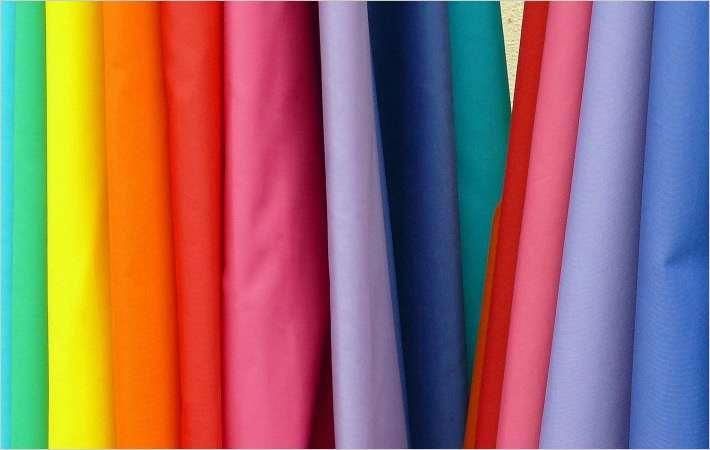Interviews
EU amends criteria for Ecolabel of textile products
14 Aug '17
3 min read

The European Commission (EU) has recently issued a notice in its official journal establishing the ecological criteria for the award of the EU Ecolabel to textile products by amending certain clauses. The notice modifies the definition of textile products to include intermediate products that can now benefit from the environment-friendly label.
The validity of the Ecolabel requirements for textile products has been extended to 78 months. The criteria were due to expire in June 2018.
Under the EU Ecolabel voluntary scheme, companies can label their products as having a lower environmental impact than other products within the same group. In the textile sector, the Ecolabel can be awarded to all sorts of products made of textiles, including clothing and accessories, interior textiles, fibres, yarn and fabric.
The EU Ecolabel assures customers of a number of environment and health related factors, including the limited use of substances harmful to the environment and human health, reduced water and air pollution, resistance to shrinking when the textile is being washed and dried, and colour resistance to perspiration or when the product is being washed.
Under the amended definition, textile products include the following three categories:
(1) Textile fibres, yarn, fabric and knitted panels: intermediate products intended for use in textile clothing and accessories and interior textiles, including upholstery fabric and mattress ticking prior to the application of backings and treatments associated with the final product.
(2) Non-fibre elements: intermediate products that are incorporated into textile clothing and accessories and interior textiles, including zips, buttons and other accessories, as well as membranes, coatings and laminates.
(3) Cleaning products: woven or non-woven products made from textile fibres and intended for the wet or dry cleaning of surfaces and the drying of kitchenware.
The sentences explaining the exceptions that apply to recycled fibres or organic cotton fibres have been amended for clarity. Clarifying on how the percentage of cotton in a product should be calculated for the purpose of ensuring compliance, the July notice says the recycled cotton fibre shall be deducted from the required minimum percentages in all cases, except for clothing for babies under three.
Amendments have also been made to the sentences explaining organic cotton, transgenic cotton, IPM cotton and pesticides restriction requirements for textiles to harmonise them with those used for the requirements for footwear and furniture product groups.
A criterion on the substitution of hazardous substances used in dyeing, printing and finishing has also been amended to make it clear that “functional substances incorporated into synthetic fibres and man-made cellulose fibres during their manufacturing” that are hazardous may also be subject to restrictions.
Other changes include those relating to the criteria for corporate responsibility and the standards for colour fastness of textiles. (DS)
The validity of the Ecolabel requirements for textile products has been extended to 78 months. The criteria were due to expire in June 2018.
Under the EU Ecolabel voluntary scheme, companies can label their products as having a lower environmental impact than other products within the same group. In the textile sector, the Ecolabel can be awarded to all sorts of products made of textiles, including clothing and accessories, interior textiles, fibres, yarn and fabric.
The EU Ecolabel assures customers of a number of environment and health related factors, including the limited use of substances harmful to the environment and human health, reduced water and air pollution, resistance to shrinking when the textile is being washed and dried, and colour resistance to perspiration or when the product is being washed.
Under the amended definition, textile products include the following three categories:
(1) Textile fibres, yarn, fabric and knitted panels: intermediate products intended for use in textile clothing and accessories and interior textiles, including upholstery fabric and mattress ticking prior to the application of backings and treatments associated with the final product.
(2) Non-fibre elements: intermediate products that are incorporated into textile clothing and accessories and interior textiles, including zips, buttons and other accessories, as well as membranes, coatings and laminates.
(3) Cleaning products: woven or non-woven products made from textile fibres and intended for the wet or dry cleaning of surfaces and the drying of kitchenware.
The sentences explaining the exceptions that apply to recycled fibres or organic cotton fibres have been amended for clarity. Clarifying on how the percentage of cotton in a product should be calculated for the purpose of ensuring compliance, the July notice says the recycled cotton fibre shall be deducted from the required minimum percentages in all cases, except for clothing for babies under three.
Amendments have also been made to the sentences explaining organic cotton, transgenic cotton, IPM cotton and pesticides restriction requirements for textiles to harmonise them with those used for the requirements for footwear and furniture product groups.
A criterion on the substitution of hazardous substances used in dyeing, printing and finishing has also been amended to make it clear that “functional substances incorporated into synthetic fibres and man-made cellulose fibres during their manufacturing” that are hazardous may also be subject to restrictions.
Other changes include those relating to the criteria for corporate responsibility and the standards for colour fastness of textiles. (DS)
Fibre2Fashion News Desk – India
Popular News
Leave your Comments
Editor’s Pick
































-Ltd..jpg?tr=w-120,h-60,c-at_max,cm-pad_resize,bg-ffffff)





.jpg?tr=w-120,h-60,c-at_max,cm-pad_resize,bg-ffffff)
.jpg?tr=w-120,h-60,c-at_max,cm-pad_resize,bg-ffffff)






